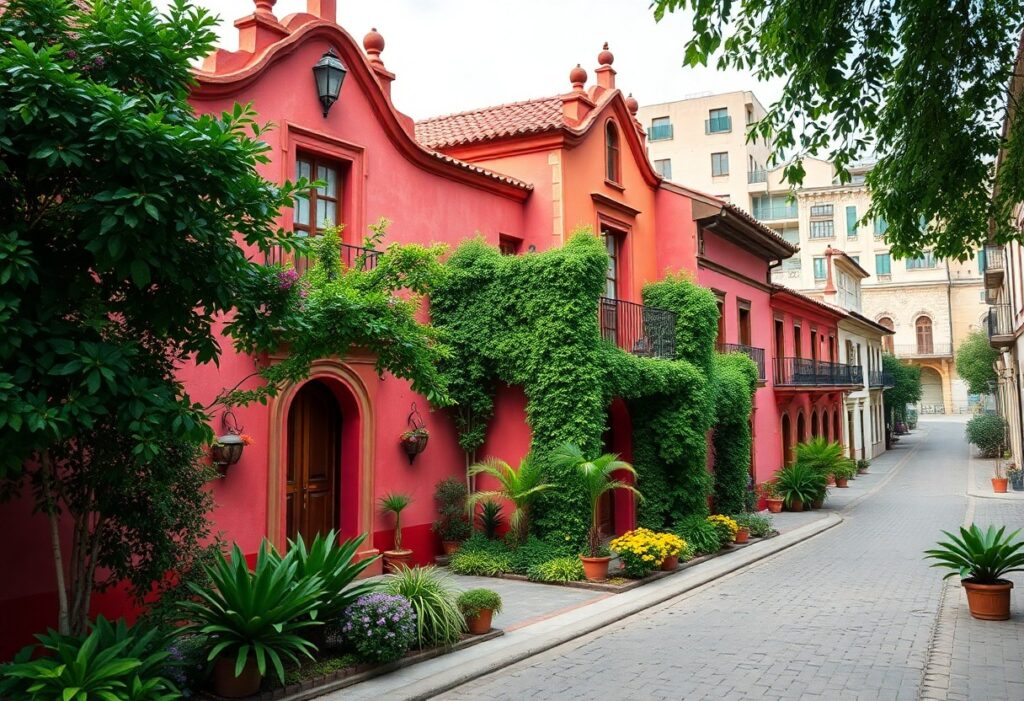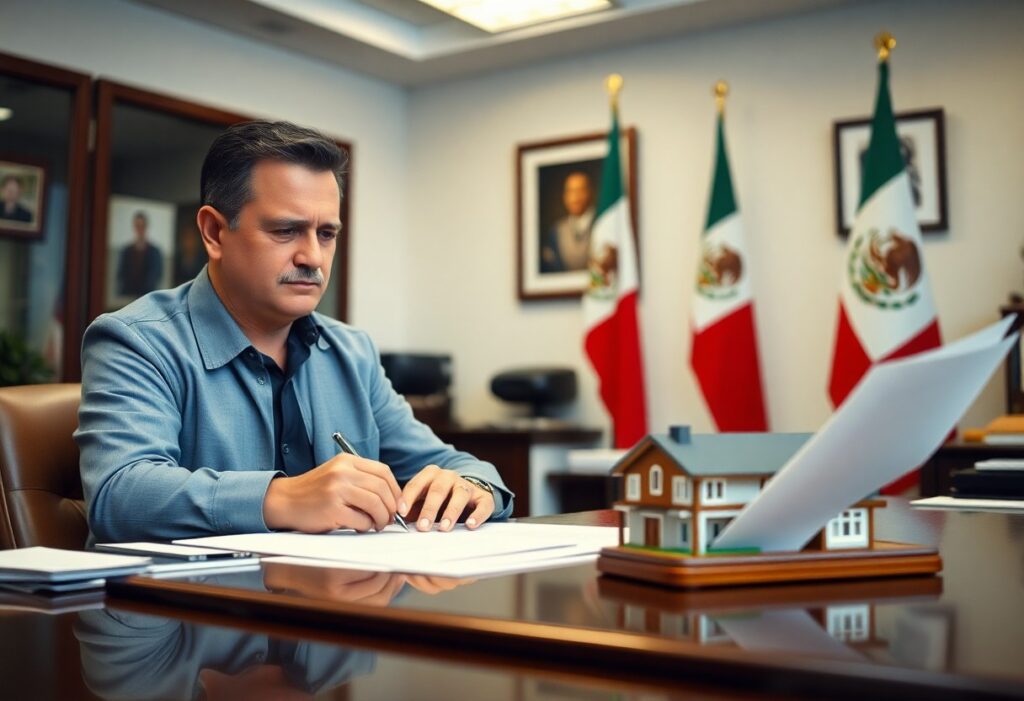Just as the allure of owning a property in Mexico captivates many, navigating the legal landscape can appear daunting. Foreigners can now buy real estate in Mexico under specific conditions, and understanding the distinctions between Federal Maritime Land, Restricted Zones, Ejido Lands, and the Unrestricted Zone is vital. Knowledge of these nuances not only safeguards your investment but also empowers you to make informed decisions. This guide will walk you through the steps, current laws, and practical advice needed to successfully purchase your dream home in Mexico.
Debunking the Myths of Foreign Real Estate Ownership in Mexico
Many misconceptions surround the idea of foreigners buying property in Mexico, filled with fears that can deter potential buyers. Despite rumors suggesting otherwise, foreign ownership is indeed viable and legally protected in many areas. Understanding these myths is necessary to making informed decisions about investing in Mexican real estate.
The Origins of Misconceptions
The fears regarding foreign ownership stem from historical laws established after the Mexican Revolution in 1917, which prohibited non-nationals from owning land. These outdated laws paved the way for misunderstandings that continue to circulate today, often leading potential buyers to believe that their investments will always be at risk.
Clarifying Ownership Rights
Your rights as a foreign property owner in Mexico have significantly evolved since 1994 when legal changes allowed foreigners to hold property titles directly. In regions outside the Restricted Zone, you can own property in your name without any trust required. This contrasts with the past, where foreign ownership was fraught with complications, primarily relying on bank trusts to secure property rights. Now, your title can be clearly documented through an escritura pública, providing complete ownership just like in your home country.
Navigating the Complex Landscape of Property Types
Understanding the types of properties available in Mexico is vital for making informed decisions. Here are the four main categories:
| Property Type | Details |
| Federal Maritime Land Zone | Cannot be owned, includes beachfront land, and remains public. |
| Restricted Zone | Foreigners use fideicomisos for property rights within this zone. |
| Ejido Lands | Communal land, complex to convert to private property. |
| Unrestricted Zone | Open for foreign ownership, similar to home country laws. |
The landscape of property ownership is diverse, and understanding these categories will pave the way for a smoother buying experience.
The Federal Maritime Land Zone Explained
The Federal Maritime Land Zone comprises beachfront land from the mean high tide line up to 20 meters inland. This property remains under the ownership of the federal government, preventing both foreign and Mexican nationals from owning it. Walks along the beach are guaranteed, as no one can obstruct access to this public space.
Insights into the Restricted Zone and Fideicomisos
The Restricted Zone extends 50 kilometers inland from the Federal Zone and includes all land within 100 kilometers of international borders. While Mexican nationals can purchase land freely in this area, foreigners must rely on a fideicomiso, or bank trust, to hold their title. This arrangement allows you the same rights as a property owner, enabling you to rent, sell, or will your property to heirs.
Using a fideicomiso means working with a bank to safeguard your investment, but it provides the necessary legal framework for property ownership in the Restricted Zone. When planning such a purchase, choose a reputable institution that understands. Being well-informed will help you navigate potential challenges effectively and secure your place in this beautiful country.

The Complexities of Ejido Lands
Understanding the regulations and implications surrounding ejido lands can be daunting. Historically, these communal lands have represented a unique aspect of Mexican land reform, but they also come with significant restrictions and challenges if you’re considering purchasing property in these areas.
Understanding Ejidos and Their Historical Context
Ejidos originated from land reform policies instituted in the 1930s, aimed at redistributing land to Mexican peasants. These communal lands, administered by local communities, provided farmers with the right to use the land they worked. While ejidos were intended to empower farmers, the system has created complex legal entanglements surrounding property ownership and transfer rights.
The Risks of Purchasing Ejido Property
Investing in ejido lands poses notable risks for foreign buyers. While some ejido properties may be marketed as “soon to be privatized,” the path to actual ownership involves a lengthy, community-based approval process. Without thorough due diligence, you might end up with a property that remains under communal control, leaving you without valid titles or rights.
Many foreigners have attempted to purchase ejido lands only to find that years later, they have no legal claim to their investments. The conversion of ejido land to private property demands unanimous consent from ejido members and can be impeded by disputes among residents. Even if seller promises seem convincing, the reality can often be starkly different, with potential litigation and boundary disputes preventing any resolution. Therefore, if you are considering buying ejido land, it’s imperative to obtain definitive proof of clear title and converted status to protect your investment fully.
Unlocking the Unrestricted Zone: Your Open Door to Ownership
The Unrestricted Zone in Mexico provides a fantastic opportunity for both foreigners and Mexicans to purchase real estate outright, ensuring clear titles and property rights. This region is defined by its distance from coastlines and international borders, making it the optimal choice for those looking to invest in thriving locations, such as San Miguel de Allende. Here, you can buy a property without the complexities associated with Restricted Zones, offering you the peace of mind every homeowner desires.
What Defines the Unrestricted Zone?
The Unrestricted Zone consists of all land that lies more than 50 kilometers (approximately 30 miles) from the coast and over 100 kilometers (around 60 miles) from international borders. This designation breaks free from the limitations imposed on property ownership and allows individuals, regardless of nationality, to own land outright. Leverage this zone for stress-free real estate ventures without unusual legal hurdles.
A Guide to the Buying Process in San Miguel de Allende
Buying real estate in San Miguel de Allende is an exciting venture that begins with selecting a trusted real estate agent familiar with the local market. Together, you can explore various listings to find a property that meets your needs. Once you’ve identified your desired home, you’ll negotiate the price and terms before signing a purchase agreement, followed by obtaining an escritura pública—imperatively your title deed. This document confirms your ownership, officially bringing you one step closer to making San Miguel de Allende your home.
After signing the purchase agreement, it’s imperative to conduct due diligence, which may include title searches and property inspections to confirm there are no encumbrances. You’ll typically enlist a lawyer to facilitate these processes, ensuring compliance with all legal requirements. Once inspections are complete and any issues resolved, you’ll go to closing, where you’ll sign the escritura pública. This officially transfers the title into your name, allowing you full ownership rights and the enjoyment of your new Mexican property.
Essential Steps for a Successful Purchase
Embarking on your real estate journey in Mexico requires careful planning and compliance with legalities. Begin by engaging with knowledgeable professionals, thoroughly researching your desired location, and understanding the specific regulations that govern property purchases. Each step helps ensure your investment is sound and legally protected, making your dream of owning a piece of this vibrant country a reality.
Engaging Real Estate Professionals
Working with experienced real estate agents who are familiar with local laws and market trends is vital. They can guide you through the buying process, offer valuable insights into neighborhoods, and help negotiate favorable terms. Their expertise ensures you avoid the common pitfalls associated with purchasing property in a foreign market.
Due Diligence: What to Remember
Your due diligence is imperative to safeguard your investment. This includes verifying property titles, conducting inspections, and confirming zoning regulations. Always obtain comprehensive documentation before finalizing your purchase to ensure the property meets your expectations and complies with local laws.
Engaging in due diligence involves multiple layers of verification. Start by requesting a title search to confirm that the seller has the legal right to transfer ownership and that no liens or claims exist against the property. Inspections help identify potential issues, such as structural or maintenance concerns, that may not be evident at first glance. Understanding local zoning regulations can also prevent future headaches, ensuring your planned use of the property aligns with municipal guidelines. Additionally, be aware of pending legislation that could affect property values or usage in the area, keeping your investment secure and sound.
Summing Up
Taking this into account, buying real estate in Mexico, particularly in areas like San Miguel de Allende, is entirely feasible for you as a foreigner. You can own property outright in the Unrestricted Zone without the complications of bank trusts or leases. However, it’s necessary to engage a qualified real estate professional or lawyer to guide you through the process and ensure compliance with local laws and regulations. Being informed about the distinctions between different types of land is vital, especially concerning ejido lands and the Restricted Zone, to secure your investment with confidence.
See also: finance-business.
Eliot Mercer is an insightful author and local enthusiast, specializing in the vibrant culture and scenic beauty of San Miguel de Allende. With a passion for storytelling, he explores the rich history, diverse arts, and unique lifestyle of this enchanting Mexican town, providing readers with a captivating lens through which to view the community. Through his engaging writing, Eliot invites others to discover the charm and allure of San Miguel de Allende, sharing his personal experiences and deep appreciation for the area’s traditions and modern dynamics.





Your insights on the complexities of foreign real estate ownership in Mexico truly highlight a critical aspect that many prospective buyers often overlook. As someone who has navigated this terrain myself, I can attest to the importance of understanding the distinct regulations and legal classifications when purchasing property south of the border.
It’s refreshing to see the complexities of buying real estate in Mexico being addressed so clearly. As someone who has navigated this process recently, I found that understanding the concept of Restricted Zones was crucial. Many first-timers are unaware that while buying property near the coast is possible, it often requires additional steps that are not immediately obvious, such as the use of a fideicomiso (bank trust).
Your insights into the legal intricacies of purchasing property in Mexico resonate strongly with many prospective buyers, as the complexities can indeed be overwhelming. As someone who has navigated the real estate landscape myself, I found that the key to overcoming these challenges lies in diligent research and connecting with knowledgeable local experts.
Navigating the complexities of real estate ownership in Mexico as a foreigner is indeed a topic that warrants careful consideration, especially with the various legal distinctions you mentioned. It’s fascinating how the allure of owning a piece of paradise can be overshadowed by misconceptions that often stem from misinformation.